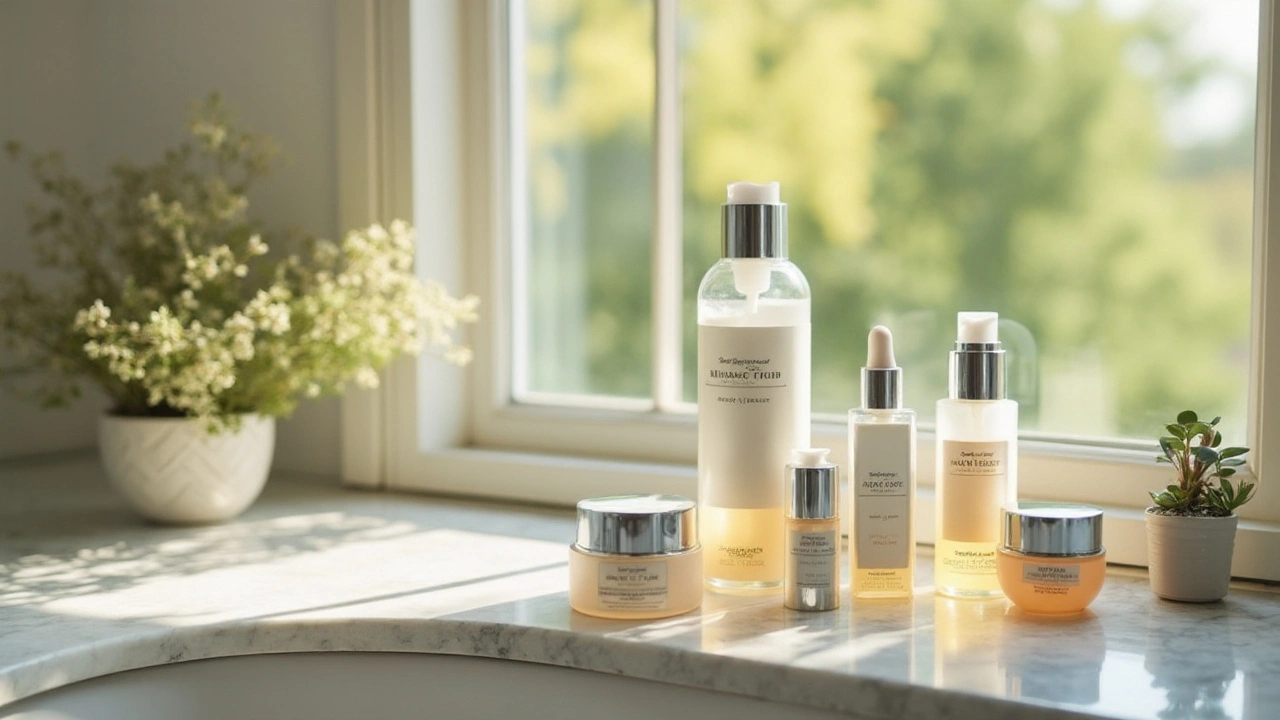Skin Luminosity: Real Tips for a Brighter, Healthy-Looking Face
Want skin that catches light without makeup? You don't need a dozen products. Focus on a few habits and ingredients that actually change how your skin looks: brighter, smoother, and more even. Below you’ll find simple routines, ingredient tips, and mistakes that commonly kill your glow.
Quick morning and evening routines
Morning: wash with a gentle cleanser, apply a stable vitamin C serum (antioxidant + brightening), follow with a lightweight moisturizer, and finish with broad-spectrum sunscreen SPF 30 or higher. Sunscreen is non-negotiable — sun damage dulls skin fast.
Evening: double-cleanse if you wear sunscreen or makeup (oil cleanse then gentle water-based cleanser). Use a targeted treatment: on nights you tolerate it, a retinoid or a low‑strength AHA/BHA to speed cell turnover. End with a richer moisturizer to lock in hydration. If you use acids and retinoids, alternate nights to reduce irritation.
Key ingredients that actually help
Vitamin C: brightens and evens tone. Pick a formula that feels stable and patch-test first.
Niacinamide: reduces blotchiness and strengthens the skin barrier. It plays well with most products.
Retinoids (retinol, tretinoin): increase cell turnover so dead skin sheds faster and looks fresher. Start slow — once or twice a week and build up.
AHAs (glycolic, lactic): gentle exfoliation removes dull surface cells. Use low concentrations at first and never mix strong acids with retinoids on the same night.
Hyaluronic acid: hydrates and plumps, which makes skin reflect light better. Use under moisturizer.
Sunscreen: physical or chemical, but apply daily. Sunscreen prevents new dark spots and preserves any gains you make with serums or treatments.
Optional: professional treatments like chemical peels, laser, or microdermabrasion can boost luminosity faster, but they require proper aftercare and sun protection.
Small lifestyle moves add up: drink water, get consistent sleep, manage stress, and eat antioxidant-rich foods (berries, leafy greens, oily fish). Supplements like omega-3s or collagen are popular — some find benefits, but they're not a magic fix.
Final quick checklist: patch-test new actives, start low and slow, layer thin-to-thick, sunscreen every morning, and avoid mixing strong actives at once. Keep it consistent — skin needs time to respond.
Want product ideas or a short routine for sensitive skin? Ask and I’ll give options that match your budget and skin type.
7
Unlocking Radiant Skin with Azelaic Acid: Your Guide to a Luminous Complexion
Azelaic acid is gaining attention as a key ingredient in skincare for its ability to enhance skin's radiance and luminosity. This naturally occurring compound offers multifaceted benefits such as reducing skin inflammation, unclogging pores, and smoothing the skin's surface. Its gentle nature makes it suitable for a range of skin types, including sensitive skin. Unravel the secrets of azelaic acid and discover how it could transform your skincare routine.
Latest Posts
Popular Posts
-
 Stinging Insect Allergy: What Venom Immunotherapy Really Does for You
Stinging Insect Allergy: What Venom Immunotherapy Really Does for You
-
 OTC Heartburn Medications: Antacids, H2 Blockers & PPIs Explained
OTC Heartburn Medications: Antacids, H2 Blockers & PPIs Explained
-
 Magnesium Supplements and Osteoporosis Medications: What You Need to Know About Timing
Magnesium Supplements and Osteoporosis Medications: What You Need to Know About Timing
-
 Extended Use Dates: How the FDA Extends Drug Expiration Dates During Shortages
Extended Use Dates: How the FDA Extends Drug Expiration Dates During Shortages
-
 Accidental Pediatric Medication Overdose: How to Prevent It and What to Do If It Happens
Accidental Pediatric Medication Overdose: How to Prevent It and What to Do If It Happens



